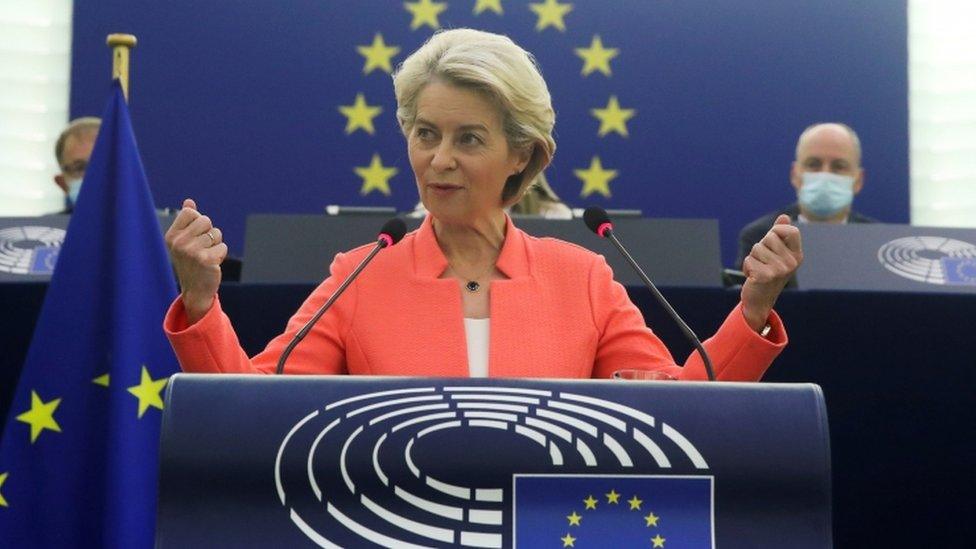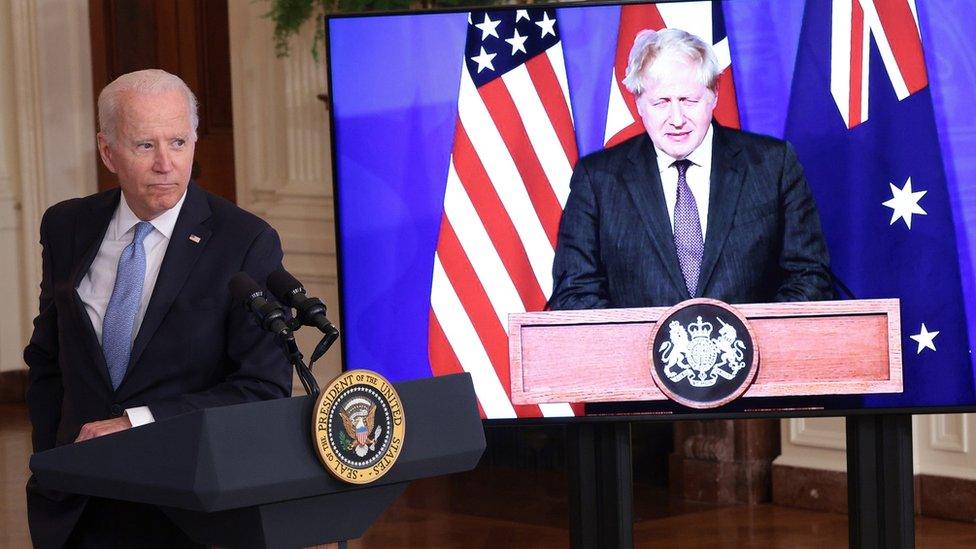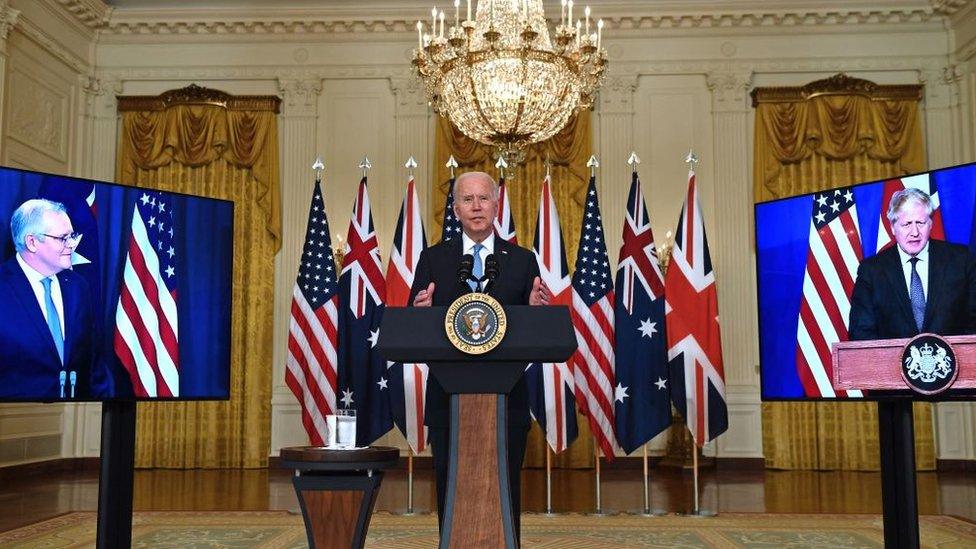Aukus: Defence pact an awkward wake-up call for Europe
- Published
Watch: Australia’s ‘risky bet’ to side with US over China
How do you even pronounce Aukus? Something along the lines of "awkward" came the wry suggestion from one Brussels diplomat this week.
And while France has condemned the Australia-UK-US security pact as a "stab in the back", it is certainly awkward for the European Union too.
Firstly, because not only were they not in the room for discussions, they barely seemed to know the room existed.
Josep Borrell is the EU's High Representative for Foreign Affairs and Security Policy. A big title but one that had not, in this case, gained him any privileged access.
Aukus is being seen as a significant attempt to counter Chinese influence in the South China Sea.
And as Mr Borrell stood at the podium for a press briefing this week, to launch the EU's own Indo-Pacific strategy, external, the incoming questions were not so much about his announcement, but someone else's.
We regret not having being informed, not having been part of these talks. I understand how disappointed the French government will be

The foreign policy chief admitted he was not exactly "glad" at how the timings had clashed but also declared it was a wake-up call for Europe, that they had to take the initiative.
But that leads to a second awkwardness. How?
The EU is not a military power, although we heard calls this week from Commission President Ursula von der Leyen for a "European Defence Union". Cue eye-rolls amongst some who feel like they have heard it all before.
Ursula von der Leyen said the EU had to develop the political will to act
Even if the EU could figure out how to flex some more muscle, it would have to then decide what that was for.
And that would not be easy either.
"The strategic environment does not look the same from Warsaw, Athens, Paris or Berlin," says Ian Lesser, vice-president of policy think tank The German Marshall Fund of the United States.
However, he suggests the European Union is pretty clear in terms of what it does not want, which goes to a third issue.
The EU does not want to be caught in the middle as things escalate: to have to choose, as he puts it, "between the United States and China in an increasingly fraught environment".
Finally, member state France is seething. A significant military power in its own right, France has interests and a presence in the region. Its deal with Australia was a key part of its strategy there.
The multibillion-dollar contract is one thing, the hit on a painstakingly constructed regional strategy another.
ANALYSIS: Why this pact signals a major shift
EXPLAINED: Tensions in the South China Sea
So, in summary, for the EU the timing was bad; the lack of forewarning a bit embarrassing, even if not that surprising. And, as Afghanistan did, it has thrown into sharper relief questions about the bloc's own strategic autonomy.
Things heated up this week between the West and China and the EU did not quite know where to look.
Related topics
- Published15 September 2021

- Published17 September 2021

- Published16 September 2021
